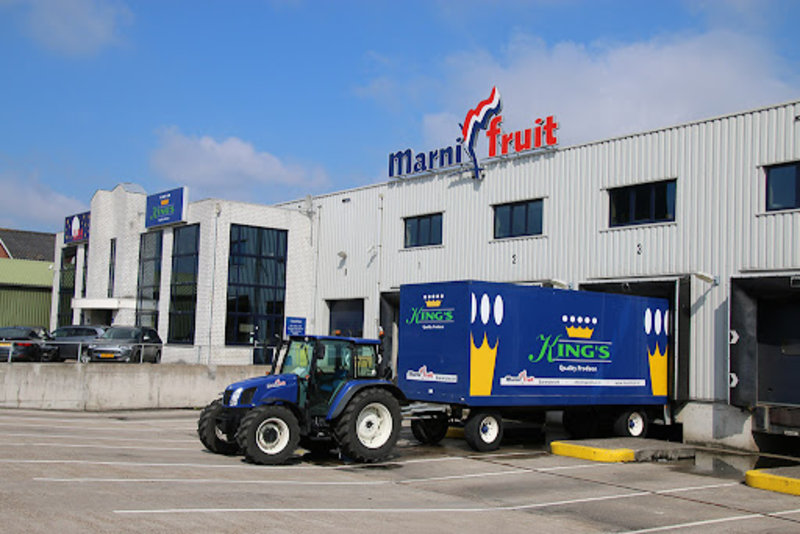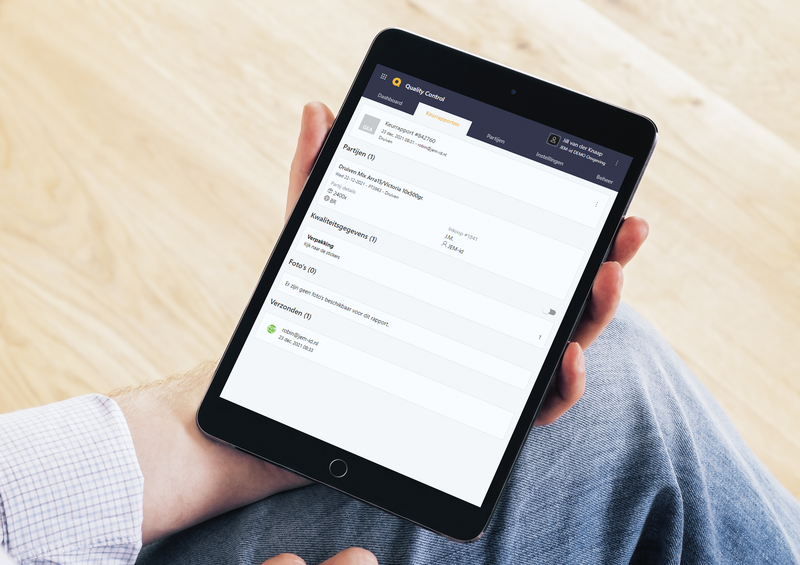Next phase Brexit: Phytosanitary inspections on fruit & vegetables fully covered in GreenCommerce
From the end of 2023, it will be mandatory to send a phytosanitary certificate when exporting, among other things, fruit and vegetables to the United Kingdom. The goods must be physically inspected and meet the applicable phytosanitary requirements for the issue of the certificate. In collaboration with Quality Produce International, Marni Fruit and Growers United, jem-id has started research into new developments in the fresh produce software package GreenCommerce. Several specific developments have emerged from this research that ensure that fresh produce companies are well prepared for the next Brexit phase.
Situation: the next Brexit phase
Phytosanitary requirements are the requirements that a particular country sets for imported products (in this case fruit and vegetables) with regard to plant diseases and pests. When importing into the United Kingdom (UK), phytosanitary documents, including the associated inspections, are mandatory. A phytosanitary inspection can be requested via e-CertNL, after which the shipment will be assessed by the Quality Control Bureau (KCB) at the specified location. If goods do not meet the phytosanitary requirements of the country of destination, they are not allowed to be exported. This can have an impact on the logistics process, whereby parts of a shipment cannot be delivered or where possible must be replaced for other batches for which inspection is again required.
“The mandatory new legislation has a huge impact on the day-to-day operational performance of exporting companies, logistics service providers, but also the KCB.” starts Berry van Zijp, implementation specialist at jem-id and Brexit-expert: “At the beginning of 2018, we started Brexit-specific developments for GreenCommerce in order to offer our customers the smoothest possible transition. Because Brexit has been postponed a number of times, the urgency to make preparations also appeared to be reduced. Now the urgency seems to be a lot higher because companies have already seen how much impact Brexit has on business operations. Good and timely preparation is crucial.”
Anita Kuiper, quality manager at Marni Fruit, continues: “The introduction has now been postponed to 2023, but automating this entire process was absolutely a must. It will create an extra workload for the inspector, who will soon have to carry out phyto inspections in addition to quality inspections.”
The UK is an important sales country for Marni Fruit. “When we started preparing for the accreditation ourselves at the beginning of February, it turned out that this subject was already receiving the necessary attention at jem-id. As a result, the rest of the process went very smoothly. Thanks to good communication with Berry, we were kept informed of the various developments that were planned. This allowed us to contribute ideas at an early stage and some additions were made to the planned developments at our request. This was followed by a clear demo with explanation. We have also experienced this as pleasant.” says Anita.

jem-id developments
Due to the new phytosanitary requirements from the United Kingdom, the number of inspection applications and certificate issues will increase enormously. The entire industry feared long processing times due to capacity issues, especially at peak times. In order to stay ahead of the anticipated problems, a company recognition system has been developed as a solution from a broad working group with representation from KCB, VGB/VBN, GFH & NVWA for the purpose of being able and allowed to perform phytosanitary checks yourself. The NVWA and the KCB will retain their supervisory role and supervision of the issuance of certificates. This company recognition system is linked to a series of conditions that fruit and vegetable companies must meet before they are allowed to carry out a phytosanitary inspection independently.
In order to support these companies, jem-id has added new developments in the fresh produce software package GreenCommerce in collaboration with customers. Within GreenCommerce it has been made possible, among other things, to record the phytosanitary status of a batch. This can be used to indicate whether or not a batch meets the requirements. Changes in the phyto status can be found in the log, to which notes can also be added. Important information can always be found within GreenCommerce.
With a sales order it can be indicated whether phytosanitary checks are applicable. Based on this property, further checks can be made on the assigned batches. The standard provision (check or no check) will be based on the destination country, with the option to exclude specific items if this becomes applicable.
It is included within the company recognition system that the KCB can select shipments for a random check. Developments have also been made in GreenCommerce for this, so that shipments are not shipped as long as they have not yet been released.

Registeren van fyto keuringen in de QC App
The new phytosanitary checks also have consequences for the inspection process of fresh produce companies that export to the UK. To prepare companies for these checks, there are new functionalities added in the linked Quality Control (QC) App. Hiermee wordt het mogelijk om naast de bestaande kwaliteitscontroles, nu ook fyto keuringen uit te voeren in de applicatie. Zo kunnen bevoegde kwaliteitsmedewerkers voortaan een fyto status bij de gekeurde partij(en) aangeven.
This makes it possible to carry out phyto inspections in the application in addition to the existing quality inspections. For example, authorized quality employees can from now on indicate a phyto status with the inspected batch(es).
When a new inspection template is created in the QC App, quality employees can distinguish between templates for quality inspection and phyto inspections. Within this template they can include additional lines that relate to the phyto-inspection.
Anita concludes: “We will register the phyto inspections via the QC App. We will soon be able to indicate per customer via GreenCommerce whether a mandatory phyto check must be carried out on the batch. The blockades for shipment by means of random checks by the KCB are also arranged via GreenCommerce.”
Curious about all the developments regarding the next Brexit phase? Contact us for more information.